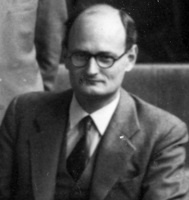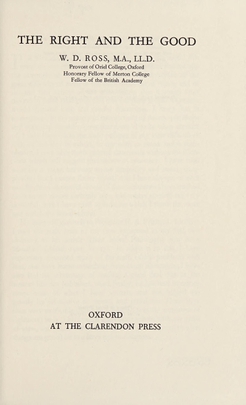Related Research Articles
Applied ethics is the practical aspect of moral considerations. It is ethics with respect to real-world actions and their moral considerations in private and public life, the professions, health, technology, law, and leadership. For example, bioethics is concerned with identifying the best approach to moral issues in the life sciences, such as euthanasia, the allocation of scarce health resources, or the use of human embryos in research. Environmental ethics is concerned with ecological issues such as the responsibility of government and corporations to clean up pollution. Business ethics includes the duties of whistleblowers to the public and to their employers.

In ethical philosophy, consequentialism is a class of normative, teleological ethical theories that holds that the consequences of one's conduct are the ultimate basis for judgement about the rightness or wrongness of that conduct. Thus, from a consequentialist standpoint, a morally right act is one that will produce a good outcome. Consequentialism, along with eudaimonism, falls under the broader category of teleological ethics, a group of views which claim that the moral value of any act consists in its tendency to produce things of intrinsic value. Consequentialists hold in general that an act is right if and only if the act will produce, will probably produce, or is intended to produce, a greater balance of good over evil than any available alternative. Different consequentialist theories differ in how they define moral goods, with chief candidates including pleasure, the absence of pain, the satisfaction of one's preferences, and broader notions of the "general good".

Ethics or moral philosophy is the philosophical study of moral phenomena. It investigates normative questions about what people ought to do or which behavior is morally right. It is usually divided into three major fields: normative ethics, applied ethics, and metaethics.
Normative ethics is the study of ethical behaviour and is the branch of philosophical ethics that investigates questions regarding how one ought to act, in a moral sense.
In ethical philosophy, utilitarianism is a family of normative ethical theories that prescribe actions that maximize happiness and well-being for the affected individuals. In other words, utilitarian ideas encourage actions that ensure the greatest good for the greatest number.

Richard Mervyn Hare, usually cited as R. M. Hare, was a British moral philosopher who held the post of White's Professor of Moral Philosophy at the University of Oxford from 1966 until 1983. He subsequently taught for a number of years at the University of Florida. His meta-ethical theories were influential during the second half of the twentieth century.
In moral philosophy, deontological ethics or deontology is the normative ethical theory that the morality of an action should be based on whether that action itself is right or wrong under a series of rules and principles, rather than based on the consequences of the action. It is sometimes described as duty-, obligation-, or rule-based ethics. Deontological ethics is commonly contrasted to consequentialism, utilitarianism, virtue ethics, and pragmatic ethics. In this terminology, action is more important than the consequences.
In ethics, welfarism is a theory that well-being, what is good for someone or what makes a life worth living, is the only thing that has intrinsic value. In its most general sense, it can be defined as descriptive theory about what has value, but some philosophers also understand welfarism as a moral theory, that what one should do is ultimately determined by considerations of well-being. The right action, policy or rule is the one leading to the maximal amount of well-being. In this sense, it is often seen as a type of consequentialism, and can take the form of utilitarianism.
Preference utilitarianism is a form of utilitarianism in contemporary philosophy. Unlike value monist forms of utilitarianism, preferentialism values actions that fulfill the most personal interests for the entire circle of people affected by said action.

Bernard Gert was a moral philosopher known primarily for his work in normative ethics, as well as in medical ethics, especially pertaining to psychology.

Utilitarianism is an 1861 essay written by English philosopher and economist John Stuart Mill, considered to be a classic exposition and defence of utilitarianism in ethics. It was originally published as a series of three separate articles in Fraser's Magazine in 1861 before it was collected and reprinted as a single work in 1863. The essay explains utilitarianism to its readers and addresses the numerous criticism against the theory during Mill's lifetime. It was heavily criticized upon publication; however, since then, Utilitarianism gained significant popularity and has been considered "the most influential philosophical articulation of a liberal humanistic morality that was produced in the nineteenth century."
Secular ethics is a branch of moral philosophy in which ethics is based solely on human faculties such as logic, empathy, reason or moral intuition, and not derived from belief in supernatural revelation or guidance—a source of ethics in many religions. Secular ethics refers to any ethical system that does not draw on the supernatural, and includes humanism, secularism and freethinking. A classical example of literature on secular ethics is the Kural text, authored by the ancient Indian philosopher Valluvar.
Act utilitarianism is a utilitarian theory of ethics that states that a person's act is morally right if and only if it produces the best possible results in that specific situation. Classical utilitarians, including Jeremy Bentham, John Stuart Mill, and Henry Sidgwick, define happiness as pleasure and the absence of pain.
Two-level utilitarianism is a utilitarian theory of ethics developed by R. M. Hare. According to the theory, a person's moral decisions should be based on a set of moral rules, except in certain rare situations where it is more appropriate to engage in a 'critical' level of moral reasoning.
Animal ethics is a branch of ethics which examines human-animal relationships, the moral consideration of animals and how nonhuman animals ought to be treated. The subject matter includes animal rights, animal welfare, animal law, speciesism, animal cognition, wildlife conservation, wild animal suffering, the moral status of nonhuman animals, the concept of nonhuman personhood, human exceptionalism, the history of animal use, and theories of justice. Several different theoretical approaches have been proposed to examine this field, in accordance with the different theories currently defended in moral and political philosophy. There is no theory which is completely accepted due to the differing understandings of what is meant by the term ethics; however, there are theories that are more widely accepted by society such as animal rights and utilitarianism.
Brad Hooker is a British-American philosopher who specializes in moral philosophy. He is a professor at the University of Reading and is best known for his work defending rule consequentialism.
Negative utilitarianism is a form of negative consequentialism that can be described as the view that people should minimize the total amount of aggregate suffering, or that they should minimize suffering and then, secondarily, maximize the total amount of happiness. It can be considered as a version of utilitarianism that gives greater priority to reducing suffering than to increasing pleasure. This differs from classical utilitarianism, which does not claim that reducing suffering is intrinsically more important than increasing happiness. Both versions of utilitarianism hold that morally right and morally wrong actions depend solely on the consequences for overall aggregate well-being. "Well-being" refers to the state of the individual.
Negative consequentialism is a version of consequentialism, which is "one of the major theories of normative ethics." Like other versions of consequentialism, negative consequentialism holds that moral right and wrong depend only on the value of outcomes. That is, for negative and other versions of consequentialism, questions such as "what should I do?" and "what kind of person should I be?" are answered only based on consequences. Negative consequentialism differs from other versions of consequentialism by giving greater weight in moral deliberations to what is bad than what is good. Due to this, it can be considered an instance of what has been called "suffering-focused ethics", the view that the reduction of suffering has moral priority over any other possible duties we may think of.

The Right and the Good is a 1930 book by the Scottish philosopher David Ross. In it, Ross develops a deontological pluralism based on prima facie duties. Ross defends a realist position about morality and an intuitionist position about moral knowledge. The Right and the Good has been praised as one of the most important works of ethical theory in the twentieth century.
References
- ↑ Garner, Richard T.; Bernard Rosen (1967). Moral Philosophy: A Systematic Introduction to Normative Ethics and Meta-ethics. New York: Macmillan. p. 70. ISBN 0-02-340580-5.
- 1 2 Mill, John Stuart (1861). Utilitarianism .
- ↑ Hooker, Brad (2003-12-31). "Rule Consequentialism". Stanford Encyclopedia of Philosophy. Archived from the original on 2007-06-09. Retrieved 2007-03-11.
- ↑ Forms and Limits of Utilitarianism, 1965.
- ↑ Allen Habib (2008), "Promises", in the Stanford Encyclopedia of Philosophy.